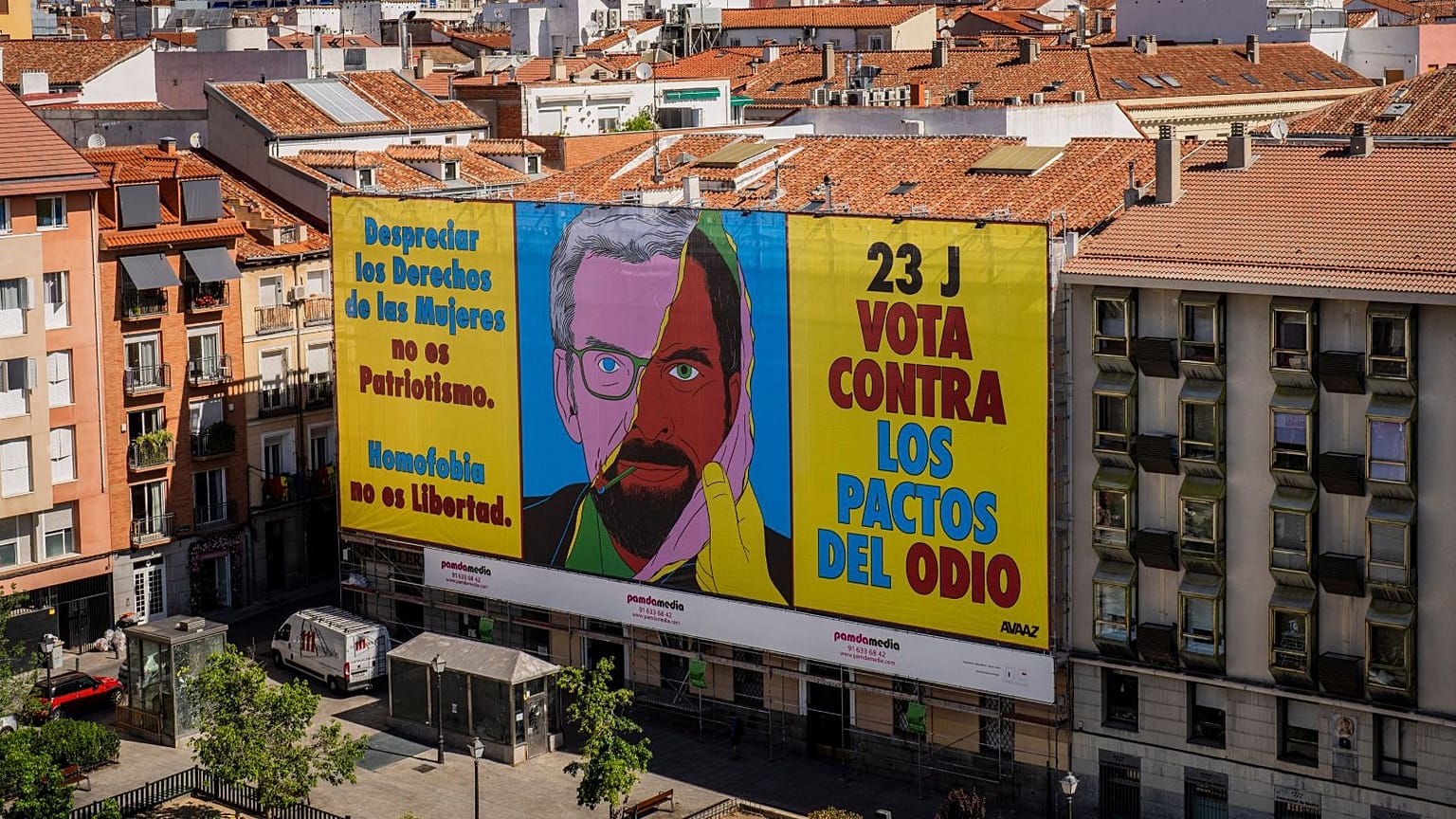Researchers have criticised what they see as an inconsistent approach taken by social media companies as misleading claims about mail ballots and election fraud spread.
Days before Spain holds a pivotal election, misleading claims about mail ballots and election fraud are spreading on social media.
 ADVERTISEMENT
ADVERTISEMENT
 ADVERTISEMENT
ADVERTISEMENT
The allegations, amplified by supporters of the centre-right Popular Party and the far-right Vox Party, bear striking similarities to the baseless claims spread by then-President Donald Trump ahead of his 2020 US election defeat.
Sunday's general election could tilt Spain in favour of the populist right, as the Popular Party looks to take power away from the Spanish Socialist Workers' Party and its far-left coalition partner, Unidas Podemos.
Prime Minister Pedro Sánchez called the early election after his left-leaning coalition lost big in this year's local and regional elections. Most polls favour the Popular Party, but it will likely need the support of the Vox to form a governing majority.
In recent weeks, debunked videos claiming to show election workers stuffing the ballot box have circulated widely on Facebook and Twitter. Facebook labelled the videos as false while Twitter has taken no action.
Other videos spreading on Facebook and TikTok allege Sanchez's party will steal the election to prevent a defeat.
The use of mail ballots is a particular focus of election conspiracy theories, with some far-right voters suggesting the post office would be used to throw the election to Sanchez.
It's a narrative that Alberto Feijoo, the Popular Party leader, has helped to amplify. At a rally last week, he urged Spain's postal employees to remain independent.
“I ask the postmen in Spain to work to the maximum, morning, afternoon and night,” Feijóo said during a campaign rally in Murcia on Wednesday. “Regardless of your bosses, I urge you to distribute all the mail-in ballots on time."
Feijoo later said he was not trying to suggest the postal service would try to steal the election but was instead referring to the challenges of handling so many mail ballots.
Conspiracy theories and extremist content
Social media researchers at the nonprofit Reset, which studies the way social media affects democracies around the world, identified numerous examples of election-related misinformation spreading on Twitter, Facebook, YouTube and TikTok.
While the specific kinds of content varies by platform — anti-Muslim hate is particularly prevalent on Twitter, for instance — election denialism was found wherever the researchers looked.
Some of the accounts spreading disinformation about the Spanish election have enormous and growing reach. Analysts at Reset identified 88 social media accounts that have repeatedly spread extremist content in Spain that have more than 14 million followers, including about a million recent ones. Posts flagged by Reset for containing hate or election conspiracy theories have been seen nearly 100 million times since January.
“Election fraud narratives that undermine trust in democratic processes – and which also dominated the regional elections in Spain – are spread across platforms,” concluded the researchers at Reset.
When it comes to identifying and removing false claims, Reset's report faulted tech platforms for inconsistency, noting that conspiracy theories or misleading claims about the election may be labeled or removed from one platform and left alone on another.














